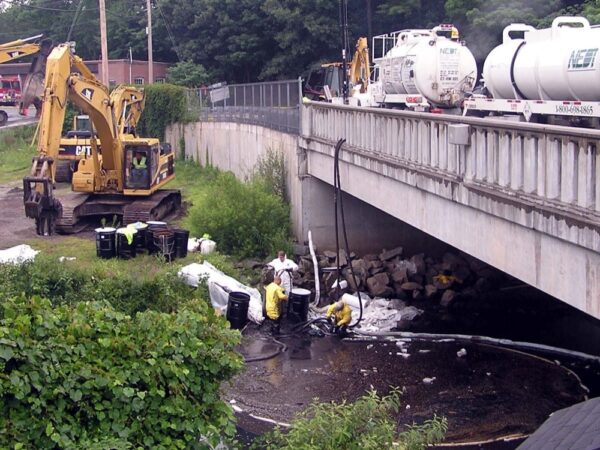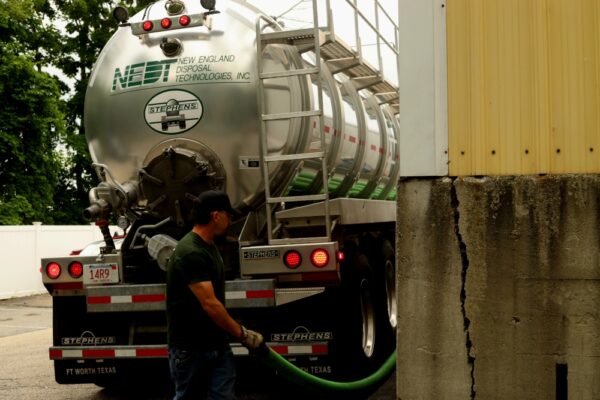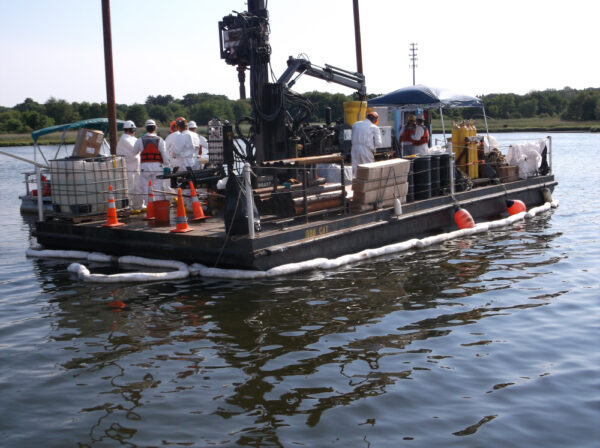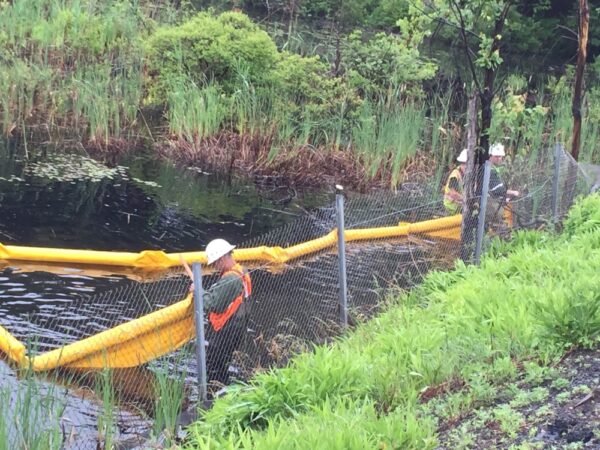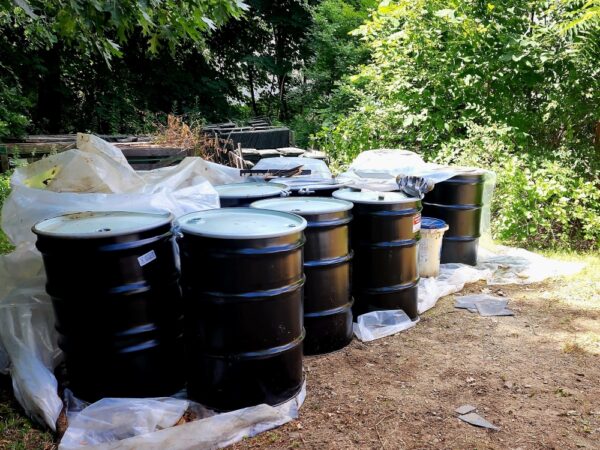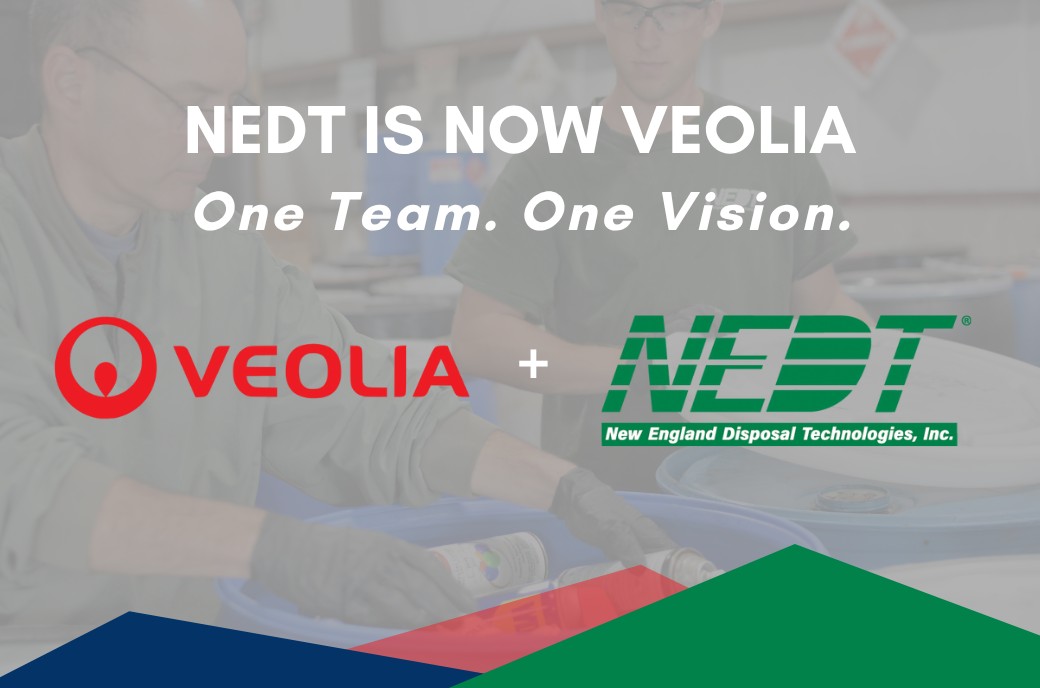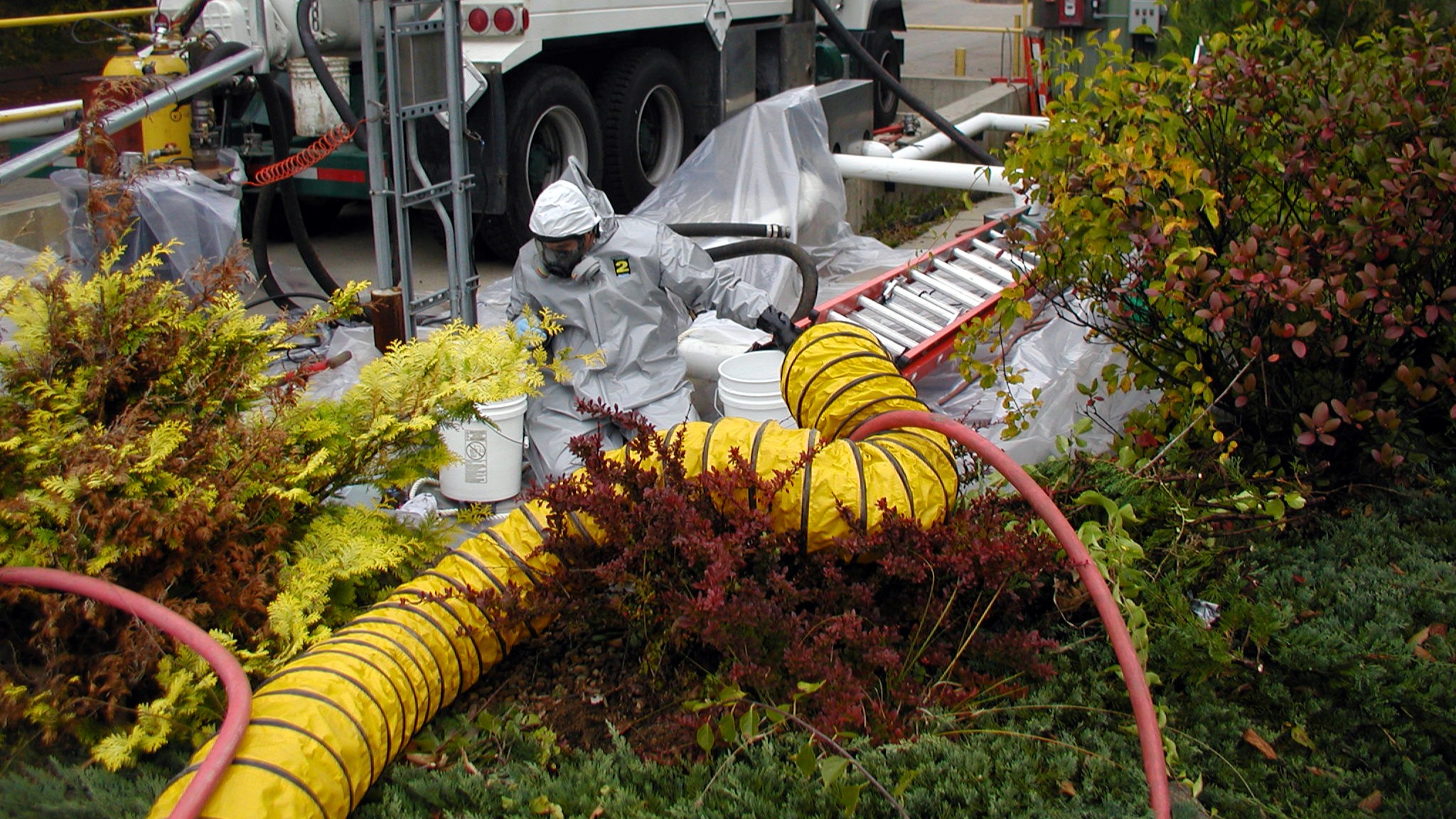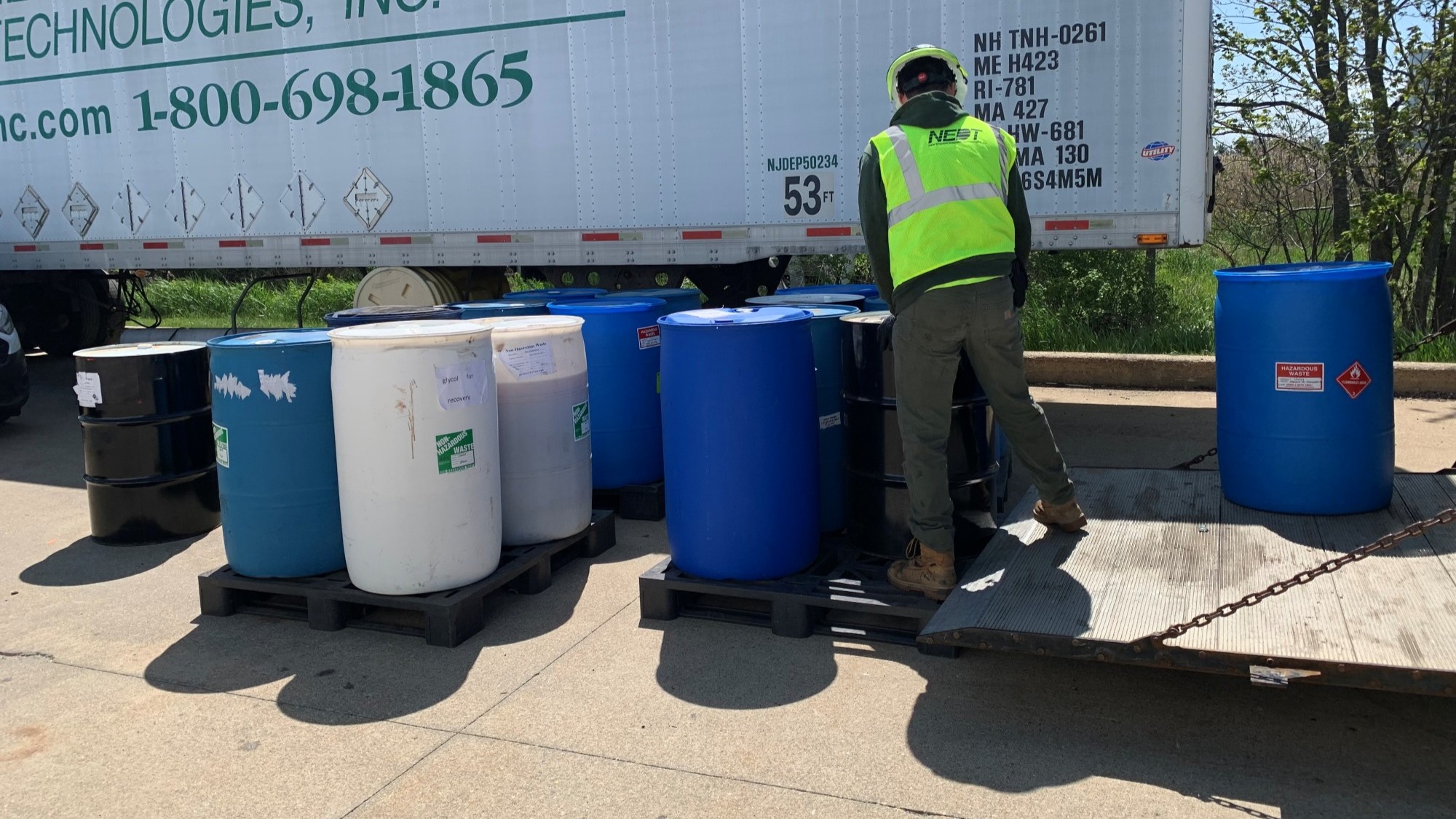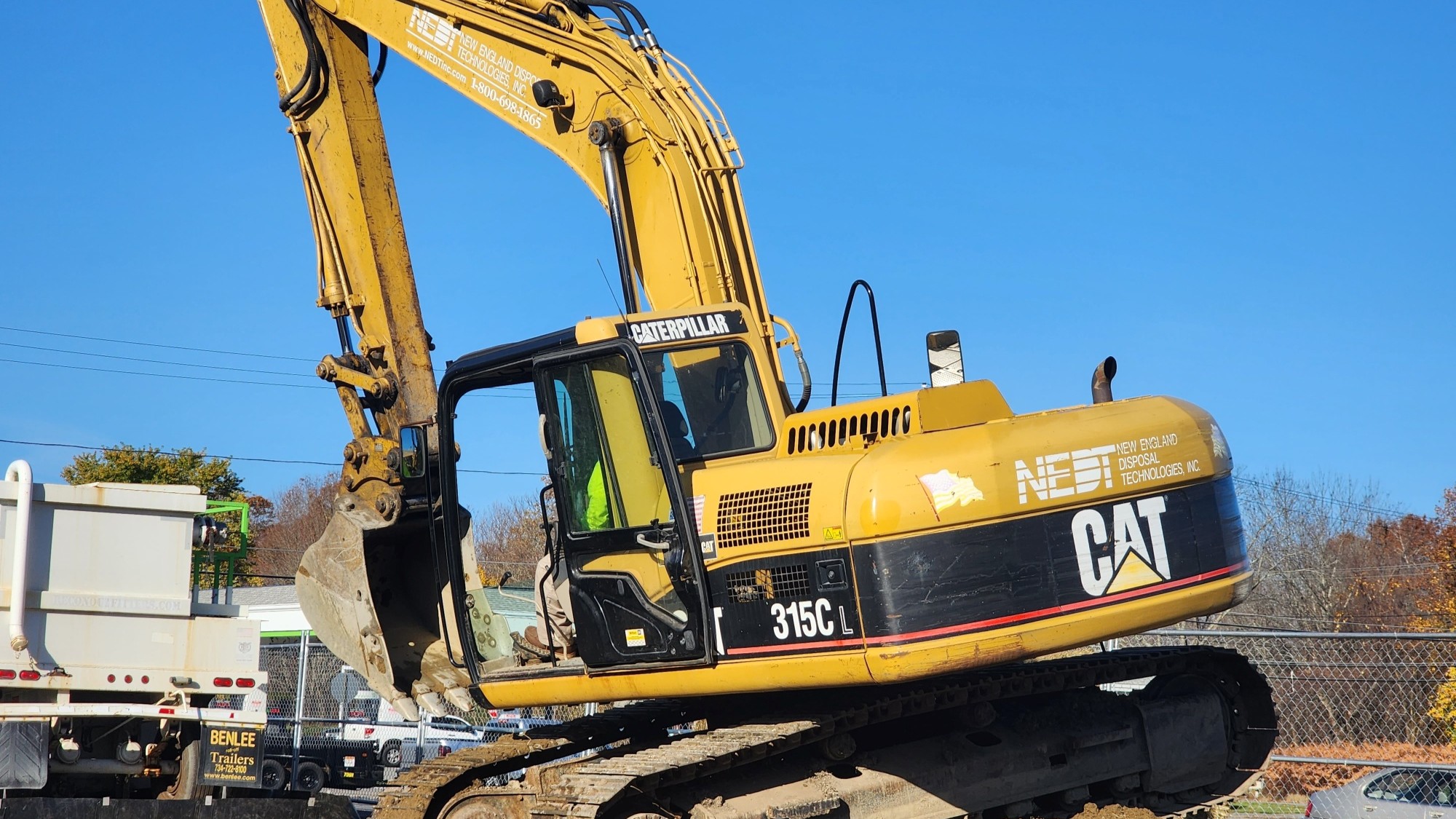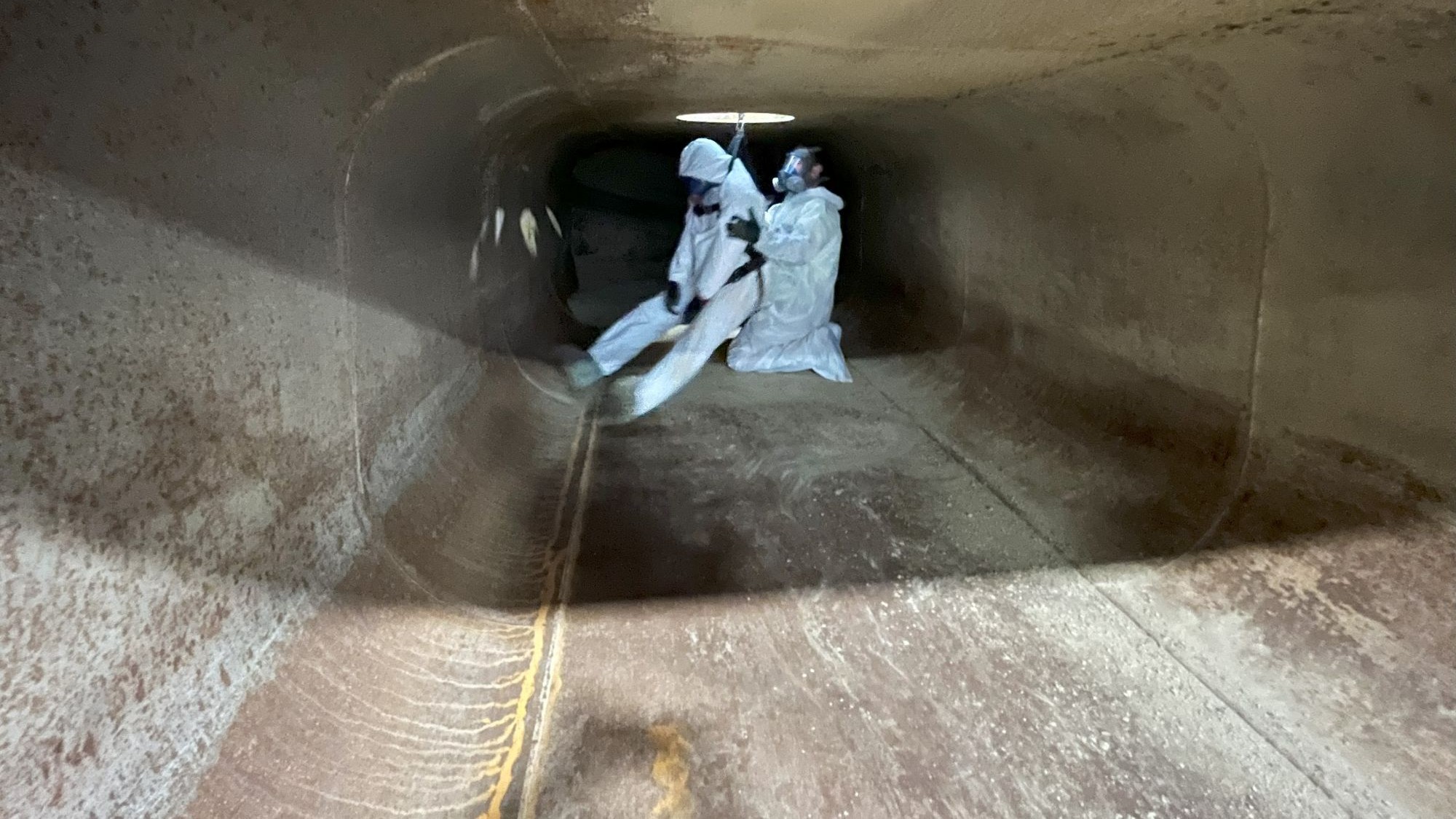Hazardous waste comes with many regulations, procedures, and caveats for collection, transportation, and disposal. But when that hazardous waste mixes with water? Dealing with contaminated water, from controlled situations like industrial manufacturing processes to emergency spills, is a complex one. Learn how New England Disposal Technologies—NEDT—handles the contaminated water disposal process from assessment through completion.
Situations that Cause Contaminated Water
Contaminated water includes three major types: machinery, tanks, pipes, or containers of contaminated water; wastewater entering sewer or storm drain systems; and contamination that may leak into groundwater or above-ground bodies of water. Origins of these contaminants include:
- Cleaning water separation infrastructure, such as oil-water separators.
- Oil and chemical spills from vehicle accidents, leaks, or industrial disasters.
- Water from industrial cleaning or firefighting runoff.
- Site contamination that threatens to leak into groundwater.
- Wastewater/drinking water contamination due to contamination into water pipes/infrastructure.
- Byproducts from industrial manufacturing, including chemical manufacturing.
How NEDT Removes and Disposes of Contaminated Water
At NEDT, we’ve got over 25 years of experience in the field of hazardous waste management. Liquid or solid, transportation and disposal, commercial or municipal: we’ve done it all. We put this considerable institutional knowledge and inventory to work in multiple ways when it comes to contaminated water projects.
The Technology Needed for Contaminated Water Removal
Between hazardous waste transportation, emergency spill response, site remediation, industrial cleaning, and disaster management, we have many tools available for contaminated water management:
- Vacuum Trucks: Trucks that incorporate suction vacuum pumps and tanks for liquids can quickly be deployed for emergency and disaster management.
- Tanker Trucks: For the transportation of contaminated water from other collectors and industrial manufacturing and storage tanks.
- Mobile Pumps: All manner of pumps, from small man-portable units to larger truck and boat-mounted or deployed units, for a variety of liquids.
- Boom Deployment: For spills into waterways and bodies of water, boom deployments to catch surface-borne chemicals and debris, combined with collection tools.
- Drums and Other Containers: For smaller amounts of contaminated water, containers of multiple sizes are available, such as 55-gallon drums.
How and Where Contaminated Water Is Disposed Of
Depending on the regulatory status of the contaminated water, it may be disposed of in several ways. For those containing hazardous waste, wastewater is shipped to a specialized hazardous waste treatment facility for wastewater treatment or incineration, depending upon its BTU value. If non-hazardous, wastewater can be sent to a recycler who uses the non-hazardous wastewater in industrial processes, so they don’t have to use tap water from a municipal source.
From small-scale transportation and disposal to large-scale emergency and disaster management, NEDT can handle your contaminated water issues all across New England with a culture of safety, confident work execution, and high situational awareness. We have the tools, staff, regulatory knowledge, and agency connections to make sure your project completion is balanced between controlling environmental liabilities and costs. Contact us today to learn more.



